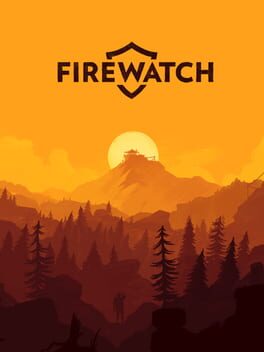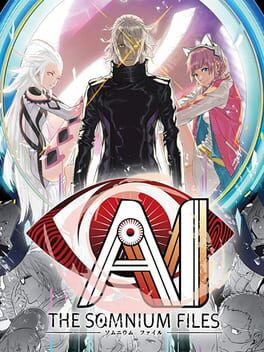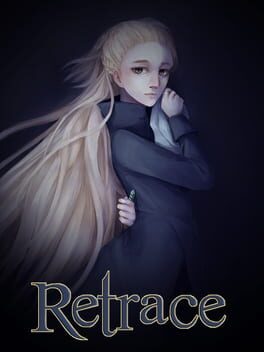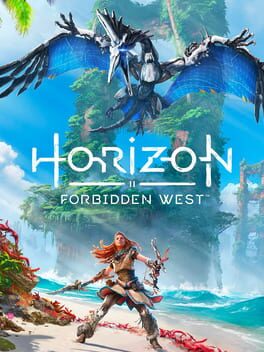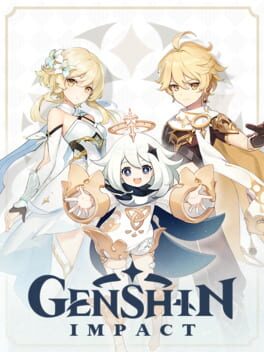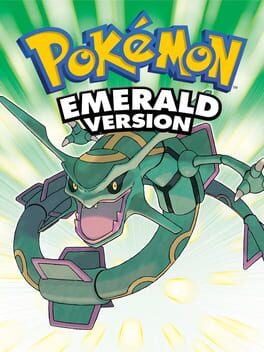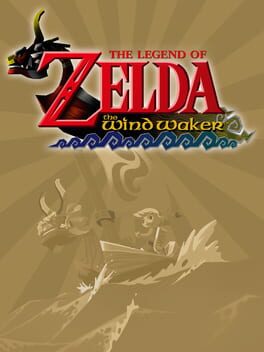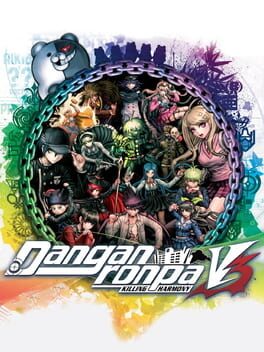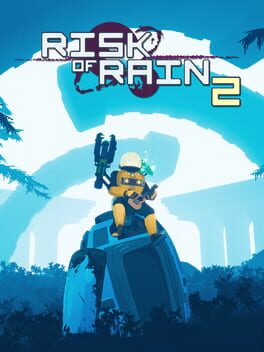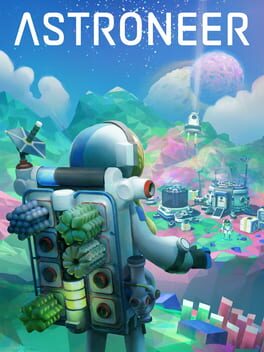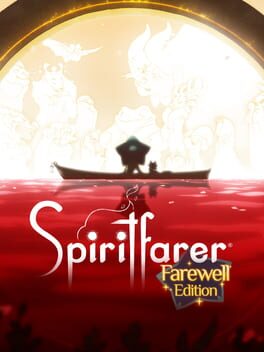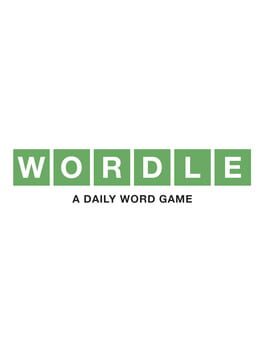kokichi
2016
A narrative so good it overpowered the beginning nausea. Given my past experiences, I am accepting that I'm v susceptible to simulation sickness.
It's been a long time since a video game has made me feel excited. Upon seeing a string of wired communications towers - man, I couldn't help myself. I laughed in delight, because that experience was all my own. I bumbled and fumbled my way and learned the landscape of Firewatch in two days.
Wish it had more staying power. Could've thrown in at least another in-game week's worth of content before getting stale.
It's been a long time since a video game has made me feel excited. Upon seeing a string of wired communications towers - man, I couldn't help myself. I laughed in delight, because that experience was all my own. I bumbled and fumbled my way and learned the landscape of Firewatch in two days.
Wish it had more staying power. Could've thrown in at least another in-game week's worth of content before getting stale.
2020
Disclosure: I am about three degrees of separation from the developer of Retrace. I think it was one brief conversation with someone else intrinsically involved in Retrace's creation.
Take that into consideration! Bias or whatever.
So, Retrace is a pretty good first. Good for an empty afternoon or two.
Beyond being fairly stable, it doesn't overstay its welcome and has an enjoyable cast of characters. Fairly engaging plot. The art is easy on the eyes. Essentially there's nothing outstanding or groundbreaking here.
If anything Retrace can sometimes be too reliant on cultural or contextual knowledge. Guide-dang-it happened a few times, I'm not going to lie. Its central gimmick is inherently hit-or-miss too.
Not much else to say, really! Give it a whirl. Or don't, I'm not your mother.
Take that into consideration! Bias or whatever.
So, Retrace is a pretty good first. Good for an empty afternoon or two.
Beyond being fairly stable, it doesn't overstay its welcome and has an enjoyable cast of characters. Fairly engaging plot. The art is easy on the eyes. Essentially there's nothing outstanding or groundbreaking here.
If anything Retrace can sometimes be too reliant on cultural or contextual knowledge. Guide-dang-it happened a few times, I'm not going to lie. Its central gimmick is inherently hit-or-miss too.
Not much else to say, really! Give it a whirl. Or don't, I'm not your mother.
This review contains spoilers
152 hours. 6 days of my life I will never get back.
Fair warning: this is going to be a long one and will cover almost the entirety of Forbidden West, because I am obsessive and detail-orientated.
So, my initial halfway review was pretty critical while concluding sappily. (It's not required reading, don't circle back to it, this is just for context.) Has anything changed upon 100% completion?
I was most wrong about the largest section - combat. Turns out I just sucked, surprising no one. The game scales with you to a respectable degree but I was hesitant to purchase mere rare weapons. Blue ones. Eventually I got my needy little claws on my oh-so-precious purple, second-best weapons and the difficulty sank in a hilarious degree.
Not to say that this game can't be ruthless. Unfair, really. Stunlocking and Aloy's glacial pace are still problems, getting enemies into vulnerable elemental states is no longer a matter of time but of your resources, etc. While the later game ropecaster is certainly respectable, it still lingers far behind its predecessors. Humans love their groups, etc.
The combo system is poorly explained and I hate that I had to turn indicators on for the melee pits. Pretty much everyone is in agreement about this. Unfortunately they're required for a trophy!
Add in a little bugginess and you have a great recipe for player irritation. The unfinished nature of Forbidden West was something I skipped over in my first review because, oh, games release janky nowadays. At least it's playable!
My almost endless sea of forgiveness dried quickly. My god. Simply, it's probably one of the most unpolished games I've ever played?
Look. I love the Horizon franchise. Zero Dawn is my favorite game, what-have-you. I spent the months prior to release days in an excited, feverish state.
I would not have minded if Forbidden West was a 2023 game. Still would've been pitifully drooling over myself for this game with the benefit of enjoying it more!
My significant other reported very little bugs in his playthrough. For him they were these charmful things, NPCs rendered to floating heads, loading akin to PS2 graphics. All occasional. Amusing.
He could not fathom how I kept getting myself into these awful situations.
I clipped through underwater sections two or three times and had to fast-travel my way out. The amount of times I got temporarily stuck in a wall during combat is immeasurable. Or even worse, I got quest-relevant and therefore important machines stuck in the wall and was forced to leave and return to them at full health. Near-invisible enemies (the ones that don't cloak) and quests that could not be completed and, and, and -
Games like these are why people are waiting two or three years to buy them. I'm not deranged enough to implement a critique of the video game industry, Triple A studios, day one double-digit patches in this review. You know it, you hate it, there's nothing unique about it.
Forbidden West deserves your money... just not right now. Give it a couple months and wait for the price to drip. PEGI's pretty much all but confirmed DLC, try it then?
If you swear by Horizon or Sony you've already bought this game. If you're on the fence grab a chair, couple of drinks and watch the patch notes release for the next couple months. Although I'm... not sure why you're reading this spoiler warning review. Thanks?
So, the combat isn't bad by my opinion. The game released unfinished. What else?
Upon reaching the ending, SO asked for my opinion. I will endlessly say it as - "I think, if this is the story they wanted to tell this was the best possible ending they could've wrung out of it."
What a nonanswer!
Ultimately the overall execution is shaky. I dislike that they went this route on merit, yes, but I do not think it is controversial to say that the story didn't stick the landing.
I found that a lot of my disappointment stemmed from something unexpected. I mistakenly thought my investment in Horizon was because of my love for open-world games.
Nope, my passion for literature and narratives comes back to haunt me. Again. I loved Zero Dawn in its completion but its story was the prime motivator for me. Forbidden West is something completely different by comparison; they needed ZD to be the prologue, the introductory phase of this strange new world before delving into all of its complexities.
My complaints are because I was served a meal I didn't pay for. Whether or not the meal is good is pretty irrelevant.
...it is better than decent. I'm not about to wave a hostess over complaining about receiving the wrong order.
But the rest of Forbidden West had to step up its game to keep me interested. The robotic mimics of animals were cool roadside attractions. A sprawling but cornered open-world. Now, they were promoted, had to reel me back in.
Considering my playtime and my completion of this game, do I need to answer whether or not it worked?
I still cannot shake off this feeling of: smaller. On paper, there is more, a boost in sidequests and these newfound errands. Machine Strike could be a standalone game. It's irrational but this unease lingers; quantity over quality.
Altogether I think this game needed a few more months at least. If by some time continuum slip I found myself a shareholder in Sony four months to release date, I would demand an indefinite delay and a major overhaul to the plot and its pacing. The Sunwing flying mount, no questions asked, should have been a midgame point.
But it's hard to have an aerial mount in an open-world game!
Hard. Not impossible. Cheese it, slap those impenetrable Zenith shields in the special places, have hostiles relentlessly shoot you from the air, ominous wind - I don't care! It is depressing how little the Sunwing is utilized.
I don't have a witty punchline here. I do really, really like Forbidden West and I am biting my nails anticipating NG+ and the DLC. I would recommend it other fannish people of open-world games who have an ample amount of patience.
It doesn't leave me with a sour taste in my mouth. Melancholy, I suppose.
Fair warning: this is going to be a long one and will cover almost the entirety of Forbidden West, because I am obsessive and detail-orientated.
So, my initial halfway review was pretty critical while concluding sappily. (It's not required reading, don't circle back to it, this is just for context.) Has anything changed upon 100% completion?
I was most wrong about the largest section - combat. Turns out I just sucked, surprising no one. The game scales with you to a respectable degree but I was hesitant to purchase mere rare weapons. Blue ones. Eventually I got my needy little claws on my oh-so-precious purple, second-best weapons and the difficulty sank in a hilarious degree.
Not to say that this game can't be ruthless. Unfair, really. Stunlocking and Aloy's glacial pace are still problems, getting enemies into vulnerable elemental states is no longer a matter of time but of your resources, etc. While the later game ropecaster is certainly respectable, it still lingers far behind its predecessors. Humans love their groups, etc.
The combo system is poorly explained and I hate that I had to turn indicators on for the melee pits. Pretty much everyone is in agreement about this. Unfortunately they're required for a trophy!
Add in a little bugginess and you have a great recipe for player irritation. The unfinished nature of Forbidden West was something I skipped over in my first review because, oh, games release janky nowadays. At least it's playable!
My almost endless sea of forgiveness dried quickly. My god. Simply, it's probably one of the most unpolished games I've ever played?
Look. I love the Horizon franchise. Zero Dawn is my favorite game, what-have-you. I spent the months prior to release days in an excited, feverish state.
I would not have minded if Forbidden West was a 2023 game. Still would've been pitifully drooling over myself for this game with the benefit of enjoying it more!
My significant other reported very little bugs in his playthrough. For him they were these charmful things, NPCs rendered to floating heads, loading akin to PS2 graphics. All occasional. Amusing.
He could not fathom how I kept getting myself into these awful situations.
I clipped through underwater sections two or three times and had to fast-travel my way out. The amount of times I got temporarily stuck in a wall during combat is immeasurable. Or even worse, I got quest-relevant and therefore important machines stuck in the wall and was forced to leave and return to them at full health. Near-invisible enemies (the ones that don't cloak) and quests that could not be completed and, and, and -
Games like these are why people are waiting two or three years to buy them. I'm not deranged enough to implement a critique of the video game industry, Triple A studios, day one double-digit patches in this review. You know it, you hate it, there's nothing unique about it.
Forbidden West deserves your money... just not right now. Give it a couple months and wait for the price to drip. PEGI's pretty much all but confirmed DLC, try it then?
If you swear by Horizon or Sony you've already bought this game. If you're on the fence grab a chair, couple of drinks and watch the patch notes release for the next couple months. Although I'm... not sure why you're reading this spoiler warning review. Thanks?
So, the combat isn't bad by my opinion. The game released unfinished. What else?
Upon reaching the ending, SO asked for my opinion. I will endlessly say it as - "I think, if this is the story they wanted to tell this was the best possible ending they could've wrung out of it."
What a nonanswer!
Ultimately the overall execution is shaky. I dislike that they went this route on merit, yes, but I do not think it is controversial to say that the story didn't stick the landing.
I found that a lot of my disappointment stemmed from something unexpected. I mistakenly thought my investment in Horizon was because of my love for open-world games.
Nope, my passion for literature and narratives comes back to haunt me. Again. I loved Zero Dawn in its completion but its story was the prime motivator for me. Forbidden West is something completely different by comparison; they needed ZD to be the prologue, the introductory phase of this strange new world before delving into all of its complexities.
My complaints are because I was served a meal I didn't pay for. Whether or not the meal is good is pretty irrelevant.
...it is better than decent. I'm not about to wave a hostess over complaining about receiving the wrong order.
But the rest of Forbidden West had to step up its game to keep me interested. The robotic mimics of animals were cool roadside attractions. A sprawling but cornered open-world. Now, they were promoted, had to reel me back in.
Considering my playtime and my completion of this game, do I need to answer whether or not it worked?
I still cannot shake off this feeling of: smaller. On paper, there is more, a boost in sidequests and these newfound errands. Machine Strike could be a standalone game. It's irrational but this unease lingers; quantity over quality.
Altogether I think this game needed a few more months at least. If by some time continuum slip I found myself a shareholder in Sony four months to release date, I would demand an indefinite delay and a major overhaul to the plot and its pacing. The Sunwing flying mount, no questions asked, should have been a midgame point.
But it's hard to have an aerial mount in an open-world game!
Hard. Not impossible. Cheese it, slap those impenetrable Zenith shields in the special places, have hostiles relentlessly shoot you from the air, ominous wind - I don't care! It is depressing how little the Sunwing is utilized.
I don't have a witty punchline here. I do really, really like Forbidden West and I am biting my nails anticipating NG+ and the DLC. I would recommend it other fannish people of open-world games who have an ample amount of patience.
It doesn't leave me with a sour taste in my mouth. Melancholy, I suppose.
2020
As of today, I have sunk a good 80 hours into a game that released a week ago.
Considering Zero Dawn is my all-time favorite game, Forbidden West had big shoes to fill... and ultimately, I cannot say that it is a better game overall.
I particularly have issues with the story; the initial motivator of Horizon is simple: find your mom. Whereas in FW, it's immediately apparent that this is a story about the 'chosen one,' on a quest to 'save the world' and all the complexities of saving said world- and, perhaps I am too used to JRPGS wherein a hero's disappearance is regarded with concern, I am still sour about the poor reception Aloy receives upon reconciling with her friends.
The beginning of this game is a slog; the prologue is in no small words, completely awful. Too heavily scripted, there is the possibility of failing a mission, while being surrounded with a whole variety of characters being highkey passive-aggressive because Aloy didn't spare time to give anyone a blowjob. It is, after all, almost entirely men who are upset with her departure; sad men who have romantic or otherwise ship-tease fodder with her. I hated the first few hours of this game and truly began to doubt myself - was Zero Dawn actually that good? Were the Nintendo fans right all along?
Then, as if insecure, the game abruptly ends the prologue and gets good. With foresight, however, I find the starting areas of the map very... dull. In comparison to the rest of the map its content is scare, nearly nonexistent. As far as I can tell, these areas are never further fleshed out - I've only backtracked to it once, for a very brief mission that largely involves conversation.
The lack of ZD's map is depressing, the inability to return and see how your familiar world has changed within the past six months... the game is ushering you into its title, westward bound, and completely disregards the opportunity to return home.
Altogether I find FW's map smaller than ZD's, albeit I am probably in the minority thinking this. While there is definitely more content within the world, always something interesting to explore, the whole of it feels... tiny. I've been anxiously avoiding Tallnecks in order to have some semblance of a unique experience, to not be ushered into blips on the map.
Actually, I changed the HUD settings, something I don't normally do. I began to appreciate FW a lot more once I turned off quest logs and pointers, the compass, leaving only my marker to guide me. I became more skeptical of my surroundings, to ensure I would not be surprised by any machines... truly, I wish these were the settings by default. No longer was the game suggesting where to go, or warning of a nearby enemy camp... the only interjections are the appearance of cauldrons and Tallnecks, if anything.
Continuing, the combat sure makes decisions. Are they good decisions? I don't know!
A lot of ZD's cheese is removed; you cannot pick enemies off one-by-one by luring them anymore. Rocks are only a temporary early-game replacement, for later enemies will merely look at the diversion from afar or will outright avoid the grass. Even if you manage to get them within silent strike range, the strike isn't a near-guarantee kill either. Thankfully most machines will engage in one-on-one combat, only alerting their friends if you give them an opening... but alive human enemies, almost 100% of the time, will first call for backup. Thus, any human that is above your ground level cannot be stealthily killed, their armor prevents any headshots, and their preference for alerting others ensures that the ensuing combat quickly evolves into a unbalanced firefight. Running away briefly is pretty much the only viable option for these situations.
Elemental conditions have been nerf'd too. Unless you get insanely lucky with the instantaneous corroding coil, quickly follow-up susceptible chain reaction points, or are in a comfortable enough position to spam bombs - and all of these situations are rare - you are not going to put them in a vulnerable elemental state. This also isn't a high risk/high reward balancing aspect; brittle is fleetingly temporary and the ice makes it difficult to hit anywhere that's sensitive to impact damage, fire overwhelms any weak spots, and drenching any enemy is almost useless. I find acid and frost to be the most useful for harder enemies and some medium-to-small scale machines are mercifully easier to ignite. Otherwise, it is necessary to remove attack components and target vulnerable areas; ZD did give you perks for weak spot damage but firing recklessly still did... some damage. Good luck with that in FW, with an extra helping of good luck aiming for areas underneath bellies or around their throat.
Also, forget close combat with the worst of machines. FW's ropecaster is laughable in comparison to ZD's. What's that? Just use the sticky bomb, it's practically the same thing as ZD's ropecaster? Whoever told you that is completely wrong. As an elemental, the adhesive bomb has to build up to its sticky state... and even if you do pin them down, some enemies can just nope out of it. Shellsnappers and Rockbreakers are the worst offenders for they will get stuck for mere seconds and then tunnel themselves underground. Which means their adhesive state begins to dwindle, which means when they resurface the effect is gone. And because these enemies burrow, they are going to be the ones you will want to get in place the most. Seriously! Who OK'd this decision, I just want to talk.
If you were skilled and brave enough, you could go head-to-head with ZD's Thunderjaws or Stormbirds. In FW? Forget about it. You insist? Okay, well, in my opinion, it's a very easy way to get yourself killed in FW.
Aloy is sluggish and more susceptible to combos, the ropes and adhesive don't last nearly long enough, sandwiching her in a very nice snack of death. Ranged combat is heavily encouraged... and it takes forever, due to all the factors of difficulty of aiming, elemental build-up difficulty, etc. It's a chore, even as someone who prefers long-distance. Sometimes it is just faster to be up close and personal, I want to be risky, I want to play dangerously... and these threats are just too massive and they can lock you into inescapable combos with ease.
Beyond all of the bad, of the NERFing, of inane decisions that I have to believe were somehow oversight... I prefer FW's battle system. Sure, I do miss when Aloy was more flexible, I miss cancelling certain attacks. But FW's system makes sure that you have to play safe. Dodging is a small respite. You have to consider every possible option, have to gauge how enemies might respond and planning your reactions. Every movement is strategical and it will swiftly punish you for playing subpar. While I do wish it was more, "pick your flavor," I understand why they changed directions and in the end I do appreciate it. I was reckless in ZD, taking advantage of cheese or the AI's stupidity.
Gotta grow up sometime, I suppose.
There's smaller, minor things. The frustration with climbing, how they copy-pasted it. How they changed collectables, how the depth of these miniature stories are lesser. Yet, there is a plethora of smaller, minor things that I like so, so much.
The introduced QOL features I cannot imagine living without. New features, like gliding and being underwater. Exploration is fine-tuned. The humor is more consistent, the new characters are more thought out regardless of their role. All aspects of FW could be (massively) improved, it stumbles where ZD soared, and it isn't an entirely better game than its predecessor. Despite it all, Forbidden West is a new game that I unabashedly love.
Considering Zero Dawn is my all-time favorite game, Forbidden West had big shoes to fill... and ultimately, I cannot say that it is a better game overall.
I particularly have issues with the story; the initial motivator of Horizon is simple: find your mom. Whereas in FW, it's immediately apparent that this is a story about the 'chosen one,' on a quest to 'save the world' and all the complexities of saving said world- and, perhaps I am too used to JRPGS wherein a hero's disappearance is regarded with concern, I am still sour about the poor reception Aloy receives upon reconciling with her friends.
The beginning of this game is a slog; the prologue is in no small words, completely awful. Too heavily scripted, there is the possibility of failing a mission, while being surrounded with a whole variety of characters being highkey passive-aggressive because Aloy didn't spare time to give anyone a blowjob. It is, after all, almost entirely men who are upset with her departure; sad men who have romantic or otherwise ship-tease fodder with her. I hated the first few hours of this game and truly began to doubt myself - was Zero Dawn actually that good? Were the Nintendo fans right all along?
Then, as if insecure, the game abruptly ends the prologue and gets good. With foresight, however, I find the starting areas of the map very... dull. In comparison to the rest of the map its content is scare, nearly nonexistent. As far as I can tell, these areas are never further fleshed out - I've only backtracked to it once, for a very brief mission that largely involves conversation.
The lack of ZD's map is depressing, the inability to return and see how your familiar world has changed within the past six months... the game is ushering you into its title, westward bound, and completely disregards the opportunity to return home.
Altogether I find FW's map smaller than ZD's, albeit I am probably in the minority thinking this. While there is definitely more content within the world, always something interesting to explore, the whole of it feels... tiny. I've been anxiously avoiding Tallnecks in order to have some semblance of a unique experience, to not be ushered into blips on the map.
Actually, I changed the HUD settings, something I don't normally do. I began to appreciate FW a lot more once I turned off quest logs and pointers, the compass, leaving only my marker to guide me. I became more skeptical of my surroundings, to ensure I would not be surprised by any machines... truly, I wish these were the settings by default. No longer was the game suggesting where to go, or warning of a nearby enemy camp... the only interjections are the appearance of cauldrons and Tallnecks, if anything.
Continuing, the combat sure makes decisions. Are they good decisions? I don't know!
A lot of ZD's cheese is removed; you cannot pick enemies off one-by-one by luring them anymore. Rocks are only a temporary early-game replacement, for later enemies will merely look at the diversion from afar or will outright avoid the grass. Even if you manage to get them within silent strike range, the strike isn't a near-guarantee kill either. Thankfully most machines will engage in one-on-one combat, only alerting their friends if you give them an opening... but alive human enemies, almost 100% of the time, will first call for backup. Thus, any human that is above your ground level cannot be stealthily killed, their armor prevents any headshots, and their preference for alerting others ensures that the ensuing combat quickly evolves into a unbalanced firefight. Running away briefly is pretty much the only viable option for these situations.
Elemental conditions have been nerf'd too. Unless you get insanely lucky with the instantaneous corroding coil, quickly follow-up susceptible chain reaction points, or are in a comfortable enough position to spam bombs - and all of these situations are rare - you are not going to put them in a vulnerable elemental state. This also isn't a high risk/high reward balancing aspect; brittle is fleetingly temporary and the ice makes it difficult to hit anywhere that's sensitive to impact damage, fire overwhelms any weak spots, and drenching any enemy is almost useless. I find acid and frost to be the most useful for harder enemies and some medium-to-small scale machines are mercifully easier to ignite. Otherwise, it is necessary to remove attack components and target vulnerable areas; ZD did give you perks for weak spot damage but firing recklessly still did... some damage. Good luck with that in FW, with an extra helping of good luck aiming for areas underneath bellies or around their throat.
Also, forget close combat with the worst of machines. FW's ropecaster is laughable in comparison to ZD's. What's that? Just use the sticky bomb, it's practically the same thing as ZD's ropecaster? Whoever told you that is completely wrong. As an elemental, the adhesive bomb has to build up to its sticky state... and even if you do pin them down, some enemies can just nope out of it. Shellsnappers and Rockbreakers are the worst offenders for they will get stuck for mere seconds and then tunnel themselves underground. Which means their adhesive state begins to dwindle, which means when they resurface the effect is gone. And because these enemies burrow, they are going to be the ones you will want to get in place the most. Seriously! Who OK'd this decision, I just want to talk.
If you were skilled and brave enough, you could go head-to-head with ZD's Thunderjaws or Stormbirds. In FW? Forget about it. You insist? Okay, well, in my opinion, it's a very easy way to get yourself killed in FW.
Aloy is sluggish and more susceptible to combos, the ropes and adhesive don't last nearly long enough, sandwiching her in a very nice snack of death. Ranged combat is heavily encouraged... and it takes forever, due to all the factors of difficulty of aiming, elemental build-up difficulty, etc. It's a chore, even as someone who prefers long-distance. Sometimes it is just faster to be up close and personal, I want to be risky, I want to play dangerously... and these threats are just too massive and they can lock you into inescapable combos with ease.
Beyond all of the bad, of the NERFing, of inane decisions that I have to believe were somehow oversight... I prefer FW's battle system. Sure, I do miss when Aloy was more flexible, I miss cancelling certain attacks. But FW's system makes sure that you have to play safe. Dodging is a small respite. You have to consider every possible option, have to gauge how enemies might respond and planning your reactions. Every movement is strategical and it will swiftly punish you for playing subpar. While I do wish it was more, "pick your flavor," I understand why they changed directions and in the end I do appreciate it. I was reckless in ZD, taking advantage of cheese or the AI's stupidity.
Gotta grow up sometime, I suppose.
There's smaller, minor things. The frustration with climbing, how they copy-pasted it. How they changed collectables, how the depth of these miniature stories are lesser. Yet, there is a plethora of smaller, minor things that I like so, so much.
The introduced QOL features I cannot imagine living without. New features, like gliding and being underwater. Exploration is fine-tuned. The humor is more consistent, the new characters are more thought out regardless of their role. All aspects of FW could be (massively) improved, it stumbles where ZD soared, and it isn't an entirely better game than its predecessor. Despite it all, Forbidden West is a new game that I unabashedly love.
As I have previously quipped, Return of the Obra Dinn is the gold standard for detective games.
Brilliant piece of investigative media. Not a single intrusion; never outright helping you along but assuring that the player does not immediately spiral into a confused, intertangled web of characters and events.
Unfortunately, Return of the Obra Dinn stumbles, hard, around the halfway point. All the pieces fell into place in rapid succession - nevertheless I still enjoyed myself, only significantly lesser when compared.
Personally I find the story's execution boring and dislike how the second-to-last accessible area is almost entirely irrelevant to the greater plot. I suppose this is a problem with telling a story non-chronologically; readers begin to assume everything is relevant and begin to invent their own fantasy of the story - causing a lot of disappointment with the reality mismatch.
Finally, the true ending of Obra Dinn is so close to being perfect. Alas, it over-explains itself. I desperately wish the game ended upon my last oh moment, the awe-horrified realization of why I had been given an amputated hand.
Brilliant piece of investigative media. Not a single intrusion; never outright helping you along but assuring that the player does not immediately spiral into a confused, intertangled web of characters and events.
Unfortunately, Return of the Obra Dinn stumbles, hard, around the halfway point. All the pieces fell into place in rapid succession - nevertheless I still enjoyed myself, only significantly lesser when compared.
Personally I find the story's execution boring and dislike how the second-to-last accessible area is almost entirely irrelevant to the greater plot. I suppose this is a problem with telling a story non-chronologically; readers begin to assume everything is relevant and begin to invent their own fantasy of the story - causing a lot of disappointment with the reality mismatch.
Finally, the true ending of Obra Dinn is so close to being perfect. Alas, it over-explains itself. I desperately wish the game ended upon my last oh moment, the awe-horrified realization of why I had been given an amputated hand.
I have the vaguest memories of my childhood playthrough with Emerald. I didn't "get" Pokemon until Generation 4 - despite routinely being gifted them, Pokemon Yellow being my first ever game and the first birthday gift I even recall receiving - because I had an undiagnosed learning disability!
So, when you're well into elementary school and not really comprehending very basic storytelling, the (flimsy) depth of the plot and characters don't really resonate with you. I didn't finish Emerald, but I was in awe of the progress from Generation 2 to 3. Still am! Initially it was the mere spectacle of the colored sprites; as an adult I heavily appreciate the ironing of battle mechanics, the addition of natures and abilities... to this day I consider the jump from 2 to 3 the most progress Pokemon has and will ever make.
I really admire Generation 3 for that. It's certainly not my favorite - not even close - but it absolutely stands alone.
So, when you're well into elementary school and not really comprehending very basic storytelling, the (flimsy) depth of the plot and characters don't really resonate with you. I didn't finish Emerald, but I was in awe of the progress from Generation 2 to 3. Still am! Initially it was the mere spectacle of the colored sprites; as an adult I heavily appreciate the ironing of battle mechanics, the addition of natures and abilities... to this day I consider the jump from 2 to 3 the most progress Pokemon has and will ever make.
I really admire Generation 3 for that. It's certainly not my favorite - not even close - but it absolutely stands alone.
Around the tender age of five, maybe six, my sister uncharacteristically gave me the controller with a suggestion. "Start throwing the pigs in the water," she said. "Attack it with your weapon," she said, with a smile widening on her face.
Totally unaware of actions and consequences and the concept of "deception," I did so.
Thoroughly traumatized, I only played Zelda again in my 20s.
Totally unaware of actions and consequences and the concept of "deception," I did so.
Thoroughly traumatized, I only played Zelda again in my 20s.
This review contains spoilers
V3 isn't my favorite game, but I have been obsessed with it for the past 3 years and counting.
Here is a sad truth; I think my experience with V3 was distinctly colored by having a lot of prior knowledge about the game. Essentially, I knew the plot, I knew who lived and who died. I used to be pretty laissez faire about spoilers - before V3, I would browse for any and all information I could find with very few exceptions. My old philosophy basically boiled down to: I don't want to get invested and then regret it.
V3 made me heavily reconsider that method. Yet, if I went into V3 as blind as I go into games now, I do not think I would have enjoyed it nearly as much.
Humans are full of such idiosyncrasies. To err is to be human, as the saying goes.
I dislike a particular trope, the "rug-pull" that stories nowadays tend to rely on. Hades' initial escape and the storytelling that followed afterwards enraged me for weeks. Basically, I hate when fellow storytellers lull me into a false sense of security and tear that peace of mind away without the necessary foreshadowing. It's a cheap trick, the novel equivalent of a jump scare. Got you!
A central question arises. Does V3 make use of my hated enemy, the rug-pull, or a classic narrative device, a plethora of plot twists?
The answer really depends on the individual. Some will make the false advertising protagonist joke in jest; many are truly not kidding. I have had my fair share of people being upset about Akamatsu, I have seen likeminded diehard V3 fans detest and ignore the ending. People who swear by pre-KG personalities and characters, the very opposition of that theory.
I will say, it is exceedingly rare to find any two people within V3 fandom who think alike. There isn't a consistent understanding of... anything, really. Normally I really enjoy hearing secondhand opinion and accounts but I stray far, far away from any analysis on V3 - more often than not I walk away upset or disillusioned.
Typically, I find that a lot of people tend to miss the central thesis of V3. That being, you don't have to continue existing as the person you once were.
Does it matter if this cast were all degenerates beforehand? What if they did audition, what if they are genuine Ultimates? The characters between themselves disagree on their pasts; everyone's history is murky, unclear, but they are always and constantly given the choice to change and be different.
Not everyone chooses to go beyond their script. Kirumi, Shinguji, Iruma are basic examples - they develop very little beyond their pasts and their backstory is their motivation. Meanwhile, there is development and change to be had in characters like Gokuhara and Harukawa.
The Killing Game is everyone's tabula rasa. The characters', the audience's. Go nuts. Interpret as you see fit.
V3, I think, is a fundamentally kind game even about the most grotesque of people.
Here is a sad truth; I think my experience with V3 was distinctly colored by having a lot of prior knowledge about the game. Essentially, I knew the plot, I knew who lived and who died. I used to be pretty laissez faire about spoilers - before V3, I would browse for any and all information I could find with very few exceptions. My old philosophy basically boiled down to: I don't want to get invested and then regret it.
V3 made me heavily reconsider that method. Yet, if I went into V3 as blind as I go into games now, I do not think I would have enjoyed it nearly as much.
Humans are full of such idiosyncrasies. To err is to be human, as the saying goes.
I dislike a particular trope, the "rug-pull" that stories nowadays tend to rely on. Hades' initial escape and the storytelling that followed afterwards enraged me for weeks. Basically, I hate when fellow storytellers lull me into a false sense of security and tear that peace of mind away without the necessary foreshadowing. It's a cheap trick, the novel equivalent of a jump scare. Got you!
A central question arises. Does V3 make use of my hated enemy, the rug-pull, or a classic narrative device, a plethora of plot twists?
The answer really depends on the individual. Some will make the false advertising protagonist joke in jest; many are truly not kidding. I have had my fair share of people being upset about Akamatsu, I have seen likeminded diehard V3 fans detest and ignore the ending. People who swear by pre-KG personalities and characters, the very opposition of that theory.
I will say, it is exceedingly rare to find any two people within V3 fandom who think alike. There isn't a consistent understanding of... anything, really. Normally I really enjoy hearing secondhand opinion and accounts but I stray far, far away from any analysis on V3 - more often than not I walk away upset or disillusioned.
Typically, I find that a lot of people tend to miss the central thesis of V3. That being, you don't have to continue existing as the person you once were.
Does it matter if this cast were all degenerates beforehand? What if they did audition, what if they are genuine Ultimates? The characters between themselves disagree on their pasts; everyone's history is murky, unclear, but they are always and constantly given the choice to change and be different.
Not everyone chooses to go beyond their script. Kirumi, Shinguji, Iruma are basic examples - they develop very little beyond their pasts and their backstory is their motivation. Meanwhile, there is development and change to be had in characters like Gokuhara and Harukawa.
The Killing Game is everyone's tabula rasa. The characters', the audience's. Go nuts. Interpret as you see fit.
V3, I think, is a fundamentally kind game even about the most grotesque of people.
2019
The life-changing realization of: I can just hold the trigger buttons on my Dualshock down.
Prior to this I was not having the best time with Risk of Rain 2. No doubt, it was fun, but I couldn't keep up with my teammates. Upon realizing I could just, y'know, do that, I actually became an asset to my team! Woohoo!
Sucks that I can only realistically play as Huntress, though. Shame that the other characters don't have an aim assist option with like, a toggle on/off feature.
Thankfully it takes a lot for me to get tired of the same thing. Ate the same school lunches throughout my childhood, I play Huntress every time without problem.
The game itself never irritated me - only my beautiful denizens did. Oh, how your friends will want to do things that annoy you. Or, you will do things that annoy your friends.
I... cannot imagine playing Risk of Rain 2 with strangers. With or without voice chat. I think this game heavily depends on communication, as do all online multiplayer games, but - kind of a bit too much? Overly reliant, like a crutch. Then, conflict can arise when people disagree on what to do next, if they want to end the run already given that Risk of Rain 2 is (essentially) never-ending, etc...
Great game, all-around, and I'm excited for the expansion. I'm just gonna stay under my rock, though! Thanks!
Prior to this I was not having the best time with Risk of Rain 2. No doubt, it was fun, but I couldn't keep up with my teammates. Upon realizing I could just, y'know, do that, I actually became an asset to my team! Woohoo!
Sucks that I can only realistically play as Huntress, though. Shame that the other characters don't have an aim assist option with like, a toggle on/off feature.
Thankfully it takes a lot for me to get tired of the same thing. Ate the same school lunches throughout my childhood, I play Huntress every time without problem.
The game itself never irritated me - only my beautiful denizens did. Oh, how your friends will want to do things that annoy you. Or, you will do things that annoy your friends.
I... cannot imagine playing Risk of Rain 2 with strangers. With or without voice chat. I think this game heavily depends on communication, as do all online multiplayer games, but - kind of a bit too much? Overly reliant, like a crutch. Then, conflict can arise when people disagree on what to do next, if they want to end the run already given that Risk of Rain 2 is (essentially) never-ending, etc...
Great game, all-around, and I'm excited for the expansion. I'm just gonna stay under my rock, though! Thanks!
2019
Games that are optimized for mouse & keyboard! My favorite!
ASTRONEER is a really lovely co-op game that left me in the dust. Through my boyfriend and I's romp, I would say the majority of his 20+ hour playtime was... discovering new material, making new equipment, just generally having a really awesome time with the game. Meanwhile, it wasn't until about hour 14 that I finally stopped complaining about how (ironically) alienating this game is.
Look. Console experiences aren't perfect or anything, I'm not saying that. But ever since I stopped using my PS4 as my primary gaming device, video games have started to relentessly remind me that I'm disabled.
Shocking, I know. Earth shattering information here; PC gaming has a really big accessibility problem. Personally the most aggravating thing is that, for whatever reason, Steam refuses to believe that I'm using a Dualshock controller. Don't know why! It just does!
This internal confusion means every time I pick up a game on Steam, I have to recalibrate. Rerouting my mental button layout to whatever weird controller Steam mistakenly believes I'm using. Some games get the memo... ASTRONEER didn't.
ASTRONEER really, really didn't. It is not as bad as ABZÛ - nothing will ever be as bad as ABZÛ - but it sure comes close. Every time I opened ASTRONEER, I had to spend a good 5-10 minutes remembering what button did what. On its own, this is frustrating beyond belief - factor in the cooperation play here and the collaboration effort. Imagine you're me, someone who physically can't use M&K due to fine motor control issues and is really struggling because of that, watching your boyfriend in the distance (literally, on another planet) having oodles of fun.
Yeah. It stings.
All in all, I really liked ASTRONEER but I am very obviously not the intended audience. PC-first games have... physical expectations of their playerbase, I've come to find, and ASTRONEER is one of the most glaring examples I've found.
(Yes, I understand that there is some personal under-the-hood adjustments that can be made here - as in, fixes to the Steam client itself and not the games - but because of my learning disability aka bad-at-information and mechanical problem solving brain, I don't know how to implement those fixes either. ¯\(ツ)/¯ )
Beyond my very many grievances with ASTRONEER'S accessibility, the game itself is cute. Nearly a co-op experience dream.
Admittedly, its very real world building and collision system is... odd, to say the least. The game doesn't play fair whatsoever. We both had our odd encounters with the game's luck, got stranded, suffocated through no fault of our own, etc.
Crafting completely went over my head and I was delegated to the 'brawn' of our duo. Or, uh, the delivery boy. I didn't understand what any of the equipment on our base did, no. Nonetheless, I do know how to mine! (Allegedly!)
Obviously I got burnt out pretty quickly for all the aforementioned reasons. I do think I'll return to ASTRONEER, whenever my blood pressure has lowered and I'm not at risk of bursting a blood vessel.
ASTRONEER is a really lovely co-op game that left me in the dust. Through my boyfriend and I's romp, I would say the majority of his 20+ hour playtime was... discovering new material, making new equipment, just generally having a really awesome time with the game. Meanwhile, it wasn't until about hour 14 that I finally stopped complaining about how (ironically) alienating this game is.
Look. Console experiences aren't perfect or anything, I'm not saying that. But ever since I stopped using my PS4 as my primary gaming device, video games have started to relentessly remind me that I'm disabled.
Shocking, I know. Earth shattering information here; PC gaming has a really big accessibility problem. Personally the most aggravating thing is that, for whatever reason, Steam refuses to believe that I'm using a Dualshock controller. Don't know why! It just does!
This internal confusion means every time I pick up a game on Steam, I have to recalibrate. Rerouting my mental button layout to whatever weird controller Steam mistakenly believes I'm using. Some games get the memo... ASTRONEER didn't.
ASTRONEER really, really didn't. It is not as bad as ABZÛ - nothing will ever be as bad as ABZÛ - but it sure comes close. Every time I opened ASTRONEER, I had to spend a good 5-10 minutes remembering what button did what. On its own, this is frustrating beyond belief - factor in the cooperation play here and the collaboration effort. Imagine you're me, someone who physically can't use M&K due to fine motor control issues and is really struggling because of that, watching your boyfriend in the distance (literally, on another planet) having oodles of fun.
Yeah. It stings.
All in all, I really liked ASTRONEER but I am very obviously not the intended audience. PC-first games have... physical expectations of their playerbase, I've come to find, and ASTRONEER is one of the most glaring examples I've found.
(Yes, I understand that there is some personal under-the-hood adjustments that can be made here - as in, fixes to the Steam client itself and not the games - but because of my learning disability aka bad-at-information and mechanical problem solving brain, I don't know how to implement those fixes either. ¯\(ツ)/¯ )
Beyond my very many grievances with ASTRONEER'S accessibility, the game itself is cute. Nearly a co-op experience dream.
Admittedly, its very real world building and collision system is... odd, to say the least. The game doesn't play fair whatsoever. We both had our odd encounters with the game's luck, got stranded, suffocated through no fault of our own, etc.
Crafting completely went over my head and I was delegated to the 'brawn' of our duo. Or, uh, the delivery boy. I didn't understand what any of the equipment on our base did, no. Nonetheless, I do know how to mine! (Allegedly!)
Obviously I got burnt out pretty quickly for all the aforementioned reasons. I do think I'll return to ASTRONEER, whenever my blood pressure has lowered and I'm not at risk of bursting a blood vessel.
Right before bed, I took a cursory look at my recent playtime with Spiritfarer and immediately recoiled. "Jesus Christ," I thought, only a lot more drawn out and horrified.
It is, in the grand scheme of things, nothing spectacular; 20 hours of gameplay is essentially the bare minimum to "get" a game... but considering I only started playing three days ago and for various reasons, I tend to flux between 10-14 hours of sleep... that 20 hours squished between 72 becomes the meat of my past waking days.
I actually haven't... finished Spiritfarer yet (shh!) but I wanted to get my "initial thoughts" in some kind of readable fashion.
Firstly, let's talk about one fun thing about Spiritfarer! It is being ported to every device imaginable, as if it dares to rival Doom! But that high flexibility means low optimization - and, oh, boy, is Spiritfarer not the most polished product. At some point, Spiritfarer will crash on you, or you'll need to exit the game to fix a bug, etc... I would not recommend the console experience at all.
Yaaay.
Furthermore, the game's jankiness is... everywhere. For me particularly the most glaring... input delay? Input miscalculation? I have no idea what this problem is called - okay, this is going to sound like baby's first review, but the only way I can describe it is: sumtim I button press and the game doesn't game right.
I have to explain. So, I will be trying or mine, or I will sing to my crops and... the game's central ingrained timing is off. The game doesn't think I'm close enough to the stone, or the song mismatches with the music sheet. It's really, really minor, but it's really, really aggravating when you're just trying to do this extended minigame or you just want a crop to grow for something on the ship.
So, it's not the most developed game. Spiritfarer asks for a lot of patience, smiling and silently begging you to please ignore all of these tiny little errors. It's funny when your guest can't climb a ladder! Oh, look, you've managed to lose Daffodil! Arbitrarily we've decided to not process your actual outfit regardless of how many times you change in and out of it, so this character is not going to 'recognize you,' running out precious time, rendering her last day on the ship cold and alone and miserable outside.
I am not unfamiliar with aggravating, unpolished games that could've spent a couple of months in the oven. However, I have never been so thoroughly charmed by spaghetti code. While, yes, sometimes these bugs or hiccups are... momentarily enraging and actively damaging the narrative experience, the game quickly reels me back in. Every mistake is temporary and once fixed, the story marches onwards.
Perhaps this is just the honeymoon. However, despite spending the majority of... my life for the past few days engrossed in this game, I don't think I'm anywhere near Spiritfarer's surface. My opinions may change upon completion - 100% completion I'm guessing - but insofar I have been having a lovely time with this software gore of a video game.
It is, in the grand scheme of things, nothing spectacular; 20 hours of gameplay is essentially the bare minimum to "get" a game... but considering I only started playing three days ago and for various reasons, I tend to flux between 10-14 hours of sleep... that 20 hours squished between 72 becomes the meat of my past waking days.
I actually haven't... finished Spiritfarer yet (shh!) but I wanted to get my "initial thoughts" in some kind of readable fashion.
Firstly, let's talk about one fun thing about Spiritfarer! It is being ported to every device imaginable, as if it dares to rival Doom! But that high flexibility means low optimization - and, oh, boy, is Spiritfarer not the most polished product. At some point, Spiritfarer will crash on you, or you'll need to exit the game to fix a bug, etc... I would not recommend the console experience at all.
Yaaay.
Furthermore, the game's jankiness is... everywhere. For me particularly the most glaring... input delay? Input miscalculation? I have no idea what this problem is called - okay, this is going to sound like baby's first review, but the only way I can describe it is: sumtim I button press and the game doesn't game right.
I have to explain. So, I will be trying or mine, or I will sing to my crops and... the game's central ingrained timing is off. The game doesn't think I'm close enough to the stone, or the song mismatches with the music sheet. It's really, really minor, but it's really, really aggravating when you're just trying to do this extended minigame or you just want a crop to grow for something on the ship.
So, it's not the most developed game. Spiritfarer asks for a lot of patience, smiling and silently begging you to please ignore all of these tiny little errors. It's funny when your guest can't climb a ladder! Oh, look, you've managed to lose Daffodil! Arbitrarily we've decided to not process your actual outfit regardless of how many times you change in and out of it, so this character is not going to 'recognize you,' running out precious time, rendering her last day on the ship cold and alone and miserable outside.
I am not unfamiliar with aggravating, unpolished games that could've spent a couple of months in the oven. However, I have never been so thoroughly charmed by spaghetti code. While, yes, sometimes these bugs or hiccups are... momentarily enraging and actively damaging the narrative experience, the game quickly reels me back in. Every mistake is temporary and once fixed, the story marches onwards.
Perhaps this is just the honeymoon. However, despite spending the majority of... my life for the past few days engrossed in this game, I don't think I'm anywhere near Spiritfarer's surface. My opinions may change upon completion - 100% completion I'm guessing - but insofar I have been having a lovely time with this software gore of a video game.
2021
He made it for his girlfriend, you monsters. Have a little sensitivity about it.
Seriously though, the Dev is cool and responsive and somehow has not gone insane from overnight fame. It isn't that deep but being overtly critical of a brain teaser is...???
Can't say additional features would be unwelcome, though. Timed or thematic challenges would be cool, especially on the - ahem, hypothetically rare, occasion that I get the answer super quickly...
Seriously though, the Dev is cool and responsive and somehow has not gone insane from overnight fame. It isn't that deep but being overtly critical of a brain teaser is...???
Can't say additional features would be unwelcome, though. Timed or thematic challenges would be cool, especially on the - ahem, hypothetically rare, occasion that I get the answer super quickly...
2020
Despite dripping with early Web 2.0 nostalgia, OMORI is game that unfortunately released in 2020 - a year which could very well be monikered as "the margin between Web 2.0 and 3.0" in some years time.
The dark reception of OMORI is largely from "chronically online-" ... people. Irony is cruel that way; omoriboy was essentially about a NEET teenager who spent his life online and hated the outside and now OMORI is being slammed by that kind of person. Obviously OMORI isn't wholeheartedly disdained - it has a devoted fanbase and a relatively dedicated community... but I wager it will never outshine its own shadow.
Ultimately, everything about OMORI is controversial. From the game itself, to its characters and their designs, all the way to its creator and the complicated history of their internet footprint - OMORI is a game best enjoyed offline. Privately, safe from the wider internet's interpretation of both the game itself and its creator.
Now that the thinly veiled "please go touch grass" spiel is over, onto the actual substance and subject of this review! It only took 150+ words!
... except, not really. Added context: whenever I talk about art - from creative writing, to fine art, to movies and television shows and video games - people initially shy away from my critical thoughts. Oft I have been told, something among the lines of, "Kleu, you are really harsh about this. Why do you keep engaging if you don't like it?" In surprise, I always reply, "I don't hate it - I love it?"
I find myself on balancing atop a very funny coin; I am most disappointed by the things I love the most. Don't misunderstand, this isn't a - "it could have been great!" - rather, the thing itself is great. OMORI is great. But it could have been greater. Alas, every rise must have its fall, every action garners an equal and opposite reaction. Nonetheless I illogically find myself still quite upset about flaws in the things I enjoy; I eventually relished in destroying the thing apart, akin to a dog shredding its favorite toy. I am vicious with it because of my love for it.
Maybe I'm just crazy!
This is a really - really - really long-winded way of saying that I love OMORI. Regardless of its controversies (plural!) and its flaws I love it. Yet, ignoring these problems is dishonest; I like to write reviews with a thought in mind, the idea of, what would I have liked to know about this game before I played it? - and its downfalls are a vital part of that. Sometimes it is best to go in blind and find out for yourself - other times the pain could've been avoided or ebbed with a forewarning. It's up to each individual of how to proceed. More perceptive readers will get the gist by now, but in case you personally didn't - all of this preface is to make sure there is no misunderstanding. I'm not disguising hate as love and helping along the battering ram. However, I am also not someone who can completely disregard the ugly backstory of OMORI's development and the ugliness present within OMORI itself.
That's it. Really.
So, OMORI is a horror visual novel that everyone is pretending is an RPG.
The battle system is nothing unique of its own merit, no idea is entirely original, but they've never been integrated this way. Or, at least, this chimera has never been on such a massive platform before. I suppose I could sum up my feelings about it with... it's... fine? Underused, really. Furthermore, it's quite hands-off, which normally is something I really enjoy - but not so much here. OMORI doesn't need to hold my hand but it probably should not have let me beat the first "boss" without Releasing Energy. I was halfway through my playtime before I finally figured out how to store energy because the game didn't hold me to a script.
Okay, you might be saying, OMORI lets you discover your own way of battling. That's not inherently bad. You got to struggle and have a higher level of difficulty many players didn't because of that misunderstanding.
Agreed! Completely. But here's the catch; OMORI doesn't get to have its cake and eat it too. Early-game - hands off, no scripting, you're on your own here. Late-game, even the final boss? Near entirely scripted battles or, even worse, battles that need you to follow what is basically a "rhythm" and if you are off-beat at all it's game over.
It doesn't restart at whatever phase you died on.
It restarts the entire boss battle. (Occasionally, it will kick you back to the cutscene, sometimes unskippable cutscenes that last minutes.)
OMORI. Please, either let me fail miserably and find my own way through, or do your due diligence and make sure I'm understanding what you're asking me. Don't do this back-and-forth where I'm not being punished for not doing your script - bin the endgame punish me for my actions when you don't give any instruction or inclination of what my next attack should be. This particular boss battle isn't the players - this is a scene from a theater play and if you misstep, the irritated producer yells "CUT!" I could not write something more immersion breaking if I tried.
Rounding back to earlier, now with clarification, this is what I mean about OMORI masquerading as an RPG. This brutal behavior is typical of a [if/then] coded storyline.
But OMORI isn't a cut and dry visual novel. It is technically an RPG because of all the mechanics, even if the execution of those mechanics really do not imply an RPG framework. It has problems like... finding yourself getting not-fun lost in the world, backtracking sidequests, near-pointless or outright worthless minigames, etc - problems that would be nonexistent it it just cut its scope down.
Translating OMORI to a visual novel isn't an easy solution, nor is it actually what I want. OMORI's foundation is damaged but not completely unstable. I can't imagine that these issues were just somehow undiscovered by the beta team and crew - eventually, as all artists know, you have to know when to let things go.
OMORI is... bloated. Massively overscale- OMORI's world is not one I am willingly lost in, but one I am frustratingly floating about in. At the end of the day, I cannot entirely justify and enjoy the realm of OMORI.
This game is taut with problems, both internal and external. But OMORI could not just die in development hell, lest its grave open its arms to its creator too. Perhaps, with more time, OMORI could've been something greater... and something shorter. It could've maintained its exhilarating highs and plateaued the lows.
All in all, it's really unfortunate.
"If I had more time, I would've written a shorter letter."
The dark reception of OMORI is largely from "chronically online-" ... people. Irony is cruel that way; omoriboy was essentially about a NEET teenager who spent his life online and hated the outside and now OMORI is being slammed by that kind of person. Obviously OMORI isn't wholeheartedly disdained - it has a devoted fanbase and a relatively dedicated community... but I wager it will never outshine its own shadow.
Ultimately, everything about OMORI is controversial. From the game itself, to its characters and their designs, all the way to its creator and the complicated history of their internet footprint - OMORI is a game best enjoyed offline. Privately, safe from the wider internet's interpretation of both the game itself and its creator.
Now that the thinly veiled "please go touch grass" spiel is over, onto the actual substance and subject of this review! It only took 150+ words!
... except, not really. Added context: whenever I talk about art - from creative writing, to fine art, to movies and television shows and video games - people initially shy away from my critical thoughts. Oft I have been told, something among the lines of, "Kleu, you are really harsh about this. Why do you keep engaging if you don't like it?" In surprise, I always reply, "I don't hate it - I love it?"
I find myself on balancing atop a very funny coin; I am most disappointed by the things I love the most. Don't misunderstand, this isn't a - "it could have been great!" - rather, the thing itself is great. OMORI is great. But it could have been greater. Alas, every rise must have its fall, every action garners an equal and opposite reaction. Nonetheless I illogically find myself still quite upset about flaws in the things I enjoy; I eventually relished in destroying the thing apart, akin to a dog shredding its favorite toy. I am vicious with it because of my love for it.
Maybe I'm just crazy!
This is a really - really - really long-winded way of saying that I love OMORI. Regardless of its controversies (plural!) and its flaws I love it. Yet, ignoring these problems is dishonest; I like to write reviews with a thought in mind, the idea of, what would I have liked to know about this game before I played it? - and its downfalls are a vital part of that. Sometimes it is best to go in blind and find out for yourself - other times the pain could've been avoided or ebbed with a forewarning. It's up to each individual of how to proceed. More perceptive readers will get the gist by now, but in case you personally didn't - all of this preface is to make sure there is no misunderstanding. I'm not disguising hate as love and helping along the battering ram. However, I am also not someone who can completely disregard the ugly backstory of OMORI's development and the ugliness present within OMORI itself.
That's it. Really.
So, OMORI is a horror visual novel that everyone is pretending is an RPG.
The battle system is nothing unique of its own merit, no idea is entirely original, but they've never been integrated this way. Or, at least, this chimera has never been on such a massive platform before. I suppose I could sum up my feelings about it with... it's... fine? Underused, really. Furthermore, it's quite hands-off, which normally is something I really enjoy - but not so much here. OMORI doesn't need to hold my hand but it probably should not have let me beat the first "boss" without Releasing Energy. I was halfway through my playtime before I finally figured out how to store energy because the game didn't hold me to a script.
Okay, you might be saying, OMORI lets you discover your own way of battling. That's not inherently bad. You got to struggle and have a higher level of difficulty many players didn't because of that misunderstanding.
Agreed! Completely. But here's the catch; OMORI doesn't get to have its cake and eat it too. Early-game - hands off, no scripting, you're on your own here. Late-game, even the final boss? Near entirely scripted battles or, even worse, battles that need you to follow what is basically a "rhythm" and if you are off-beat at all it's game over.
It doesn't restart at whatever phase you died on.
It restarts the entire boss battle. (Occasionally, it will kick you back to the cutscene, sometimes unskippable cutscenes that last minutes.)
OMORI. Please, either let me fail miserably and find my own way through, or do your due diligence and make sure I'm understanding what you're asking me. Don't do this back-and-forth where I'm not being punished for not doing your script - bin the endgame punish me for my actions when you don't give any instruction or inclination of what my next attack should be. This particular boss battle isn't the players - this is a scene from a theater play and if you misstep, the irritated producer yells "CUT!" I could not write something more immersion breaking if I tried.
Rounding back to earlier, now with clarification, this is what I mean about OMORI masquerading as an RPG. This brutal behavior is typical of a [if/then] coded storyline.
But OMORI isn't a cut and dry visual novel. It is technically an RPG because of all the mechanics, even if the execution of those mechanics really do not imply an RPG framework. It has problems like... finding yourself getting not-fun lost in the world, backtracking sidequests, near-pointless or outright worthless minigames, etc - problems that would be nonexistent it it just cut its scope down.
Translating OMORI to a visual novel isn't an easy solution, nor is it actually what I want. OMORI's foundation is damaged but not completely unstable. I can't imagine that these issues were just somehow undiscovered by the beta team and crew - eventually, as all artists know, you have to know when to let things go.
OMORI is... bloated. Massively overscale- OMORI's world is not one I am willingly lost in, but one I am frustratingly floating about in. At the end of the day, I cannot entirely justify and enjoy the realm of OMORI.
This game is taut with problems, both internal and external. But OMORI could not just die in development hell, lest its grave open its arms to its creator too. Perhaps, with more time, OMORI could've been something greater... and something shorter. It could've maintained its exhilarating highs and plateaued the lows.
All in all, it's really unfortunate.
"If I had more time, I would've written a shorter letter."
